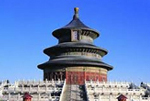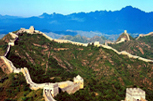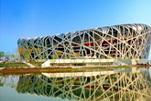On February 20, 2021, Cong Peiwu, Chinese Ambassador to Canada, gave an exclusive interview to the Canadian Press on the motion on Xinjiang-related issues put forward by the Conservative Party of Canada.
Ambassador Cong expounded China's position on Xinjiang-related issues and stated that the Conservative Party put forward a motion in the House of Commons to call on the Canadian government to officially adopt the position that a "genocide" is being carried out by China in Xinjiang. The Chinese side expresses its strong dissatisfaction and firm opposition over this. A few people in Canada and some other western countries are talking about upholding values, but one important part of the values should be: respect facts and stop spreading disinformation and even lies. Spreading lies has nothing to do with upholding values. The following facts may help you understand the real situation in Xinjiang.
First, there is no so-called "genocide" in Xinjiang at all. "Genocide" is clearly defined in international law, which cannot be pinned to China. In the past 60 years, Xinjiang's average life expectancy has grown from 30 to 72 years. From 2010 to 2018, the population of the Uyghurs in Xinjiang rose from 10.17 million to 12.72 million, an increase of 2.55 million or 25%. The number is higher than that of the whole population in Xinjiang, which is 14 percent, and much higher than that of the Han population, which is 2 percent. How is it in any way "genocide"? There is no so-called "cultural genocide" in Xinjiang either. The Chinese government protects the freedom of religious belief of all Chinese citizens, including ethnic minority groups like the Uyghur community in Xinjiang. There is one mosque for every 530 Muslims in Xinjiang. We can see the Uyghur language printed on the RMB banknote. Isn't this a token of ethnic equality in China?
Second, there is no so-called "forced sterilization". Respecting and protecting human rights is a basic principle of our Constitution, and it's embodied in our legal system and government's work. Since the founding of the PRC, women of all ethnic groups enjoy political rights and all the other rights. BBC interviewed a Uyghur woman named Zumrat Dawut who claimed she was forced to undergo "forced sterilization" with a hysterectomy. The fact is that when she was giving birth to her third child in the maternity wards of a women and children's hospital in Urumqi in March 2013, she signed a childbirth consent form voluntarily, requesting "to have a cesarean section and tubal ligation", then the hospital conducted operation as she required. This woman has become a tool for anti-China forces' attacks on and hyping up of Xinjiang.
Third, there are simply no "re-education camps" in Xinjiang. The vocational education and training centers set up in Xinjiang in accordance with laws are schools. They are no different from the Desistance and Disengagement Programme (DDP) of the UK, or the de-radicalization centers in France. They are in line with the principles and the spirit embodied in a number of international documents on counter-terrorism, such as the UN Global Counter-Terrorism Strategy and Plan of Action to Prevent Violent Extremism. By the end of 2019, all trainees who received courses including standard spoken and written Chinese, understanding of the law, vocational skills, and de-radicalization had completed their courses and secured employment. The Australian Strategic Policy Institute identified all buildings with outer walls in Xinjiang as "detention centers" in its report, but they are in fact civil institutions. For example, the "detention center" of Turpan city mentioned in the report is actually a local administrative building.
Fourth, there is no so-called "forced labor" in Xinjiang at all. The rights and interests of workers from ethnic minority groups in Xinjiang as part of China's large workforce are protected by law. They are free to choose a profession and can decide on where to work of their own free will. Almost 3 million people have been lifted out of poverty in Xinjiang by the end of 2019.
Fifth, Xinjiang-related issues are never about human rights, ethnicity, or religion, but about combating violent terrorism and secession. Xinjiang hasn't seen a single terror incident in the past 4 years and plus. In 2019, Xinjiang received over 200 million tourists. Since 2018, more than 1,200 people from over 100 countries have visited Xinjiang. That includes UN officials, foreign diplomats posted in China, some countries' permanent representatives to Geneva, journalists, and religious groups. They saw with their own eyes a region thriving with stability and prosperity and commended its exemplary counter-terrorism and de-radicalization efforts.
We welcome fair-minded foreigners to visit Xinjiang and learn the real situation there. China has extended an invitation long ago to the UN High Commissioner for Human Rights and we are in communication on this with the UNHCHR. At the same time, we are firmly opposed to interference in China's internal affairs by any country or individual under the pretext of human rights, and to the hyping-up of the so-called "investigation" in Xinjiang by someone who is already convinced that we are guilty.
Finally, I would like to stress again that Xinjiang affairs are purely internal affairs of China and no external forces have the right to interfere. We are resolute in safeguarding China's sovereignty, security and development interests. We urge the Canadian side to take seriously China's solemn position, respect the facts, discard prejudice, and correct mistakes, immediately cancel the relevant motions, stop interfering in China's internal affairs by any means, so as not to cause further damages to China-Canada relations.




